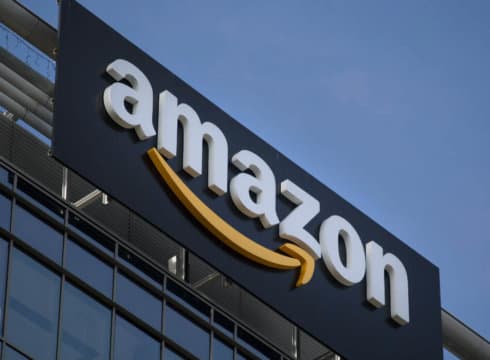Amazon India Is Priceless, We're Are Missionaries Serving Customers: Country Head Of Amazon India
Inc42 Daily Brief
Stay Ahead With Daily News & Analysis on India’s Tech & Startup Economy
In contrast to the numbers disclosed by Walmart earlier this month, Amit Agarwal, country head of Amazon India, has claimed that the global ecommerce giant is ahead of Flipkart both in gross merchandise value (GMV) and net sales.
Without sharing any specific numbers for Amazon India, Agarwal said, “It validates what we have been talking about. Now you know the GMV sales conversion ratio. We are pretty certain we are the leaders across all metrics.”
Making some relevant remarks on the Walmart announcement, Agarwal gave the following points to subtly refute what its competitor said:
- Walmart gave figures that said Flipkart had a GMV of $7.5 Bn in the fiscal year ending March 2018 and net sales of $4.6 Bn with a 50% growth on both the metrics, but the GMV number does not include the value of returned products
- Amazon India grew 64% in 2017 and at over 50% in the first quarter of this year in terms of the number of units shipped
- Gross merchandise sales and units are pretty much aligned now
Amit Agarwal is a part of Amazon founder Jeff Bezos’ senior leadership team. He refused to comment on the Citi Research report during an interaction with ET that said Amazon India is valued at $16 Bn and will exit 2018 with a GMV of $9 Bn. Commenting on this report, he only quipped, “I think Amazon India is priceless. We are missionaries and here to serve customers for decades.”
The ongoing rivalry between Amazon and Walmart has transcended its domestic boundaries from the US to reach India due to Walmart’s acquisition of a 77% stake in Flipkart. Walmart thus joined hands with Amazon’s Indian ecommerce rival Flipkart and now the Indian ecommerce space is beefing up for a tough tussle.
Walmart and Amazon have also been moving into each other’s territories in their home market. While Walmart acquired online retailers like Jet and Bonobos, Amazon acquired offline retail chain Whole Foods to make a bigger play in the grocery.
So What’s Interesting About This Rivalry?
India has become a fertile battlefield for the rival companies. Business-wise, India is the first major market across the globe which is harbouring a three-way battle among global giants such as Amazon, Walmart, and Alibaba. While Amazon has been strong and is independently holding its ground, Walmart has acquired a 77% stake of Flipkart to give Amazon a major competition in India. Alibaba has made significant investments in the online marketplace in Paytm Mall and the country’s largest online grocer, BigBasket.
Dismissing claims that Amazon had stumbled in its inorganic strategy by failing to acquire Flipkart as well as other companies such as BigBasket and fashion portal Jabong, Agarwal said that the entry of Walmart does not change Amazon’s strategy in India and that the company would continue investing aggressively.
“In the last five years in India, we have experience noise around us that have tested us. But in the five years, we have gone from zero to leader and our organic strategy of focusing on customers is working,” he said.
But however calm the Amazon India chief may sound, the fact is that since Walmart’s entry into India, it has been gearing up its war chest for the competition. Bezos has committed to an investment of $5 Bn in India and he is planning several India-focussed features to drive growth.
The reason why international and national online businesses are grappling for India’s attention is evident from the fact that by 2021, there will be about 635.8 Mn Internet users in India. This is more than the current population of the US — 327.16 million.
Amazon has been involved in a spree of investments in the tech sector recently, such as its investment in Acko. Agarwal has confirmed that the investments will continue around infrastructure, where the American company has been far more aggressive than its rivals in adding warehouses and distribution centres.
Reiterating Amazon’s vision for the next five years, he said that Amazon’s aim would be to get the next 100 million ecommerce customers, while also adding more features and benefits on its loyalty programme Prime.
Agarwal is confident of the growth because over 85% of Amazon’s customers were from small cities, while in urban areas, Prime customers are growing fast. He added that with a focus on skilling SMEs and providing access through its Udaan stores, Amazon India “will be a contributor to the new India and the economic flywheel.”
{{#name}}{{name}}{{/name}}{{^name}}-{{/name}}
{{#description}}{{description}}...{{/description}}{{^description}}-{{/description}}
Note: We at Inc42 take our ethics very seriously. More information about it can be found here.


